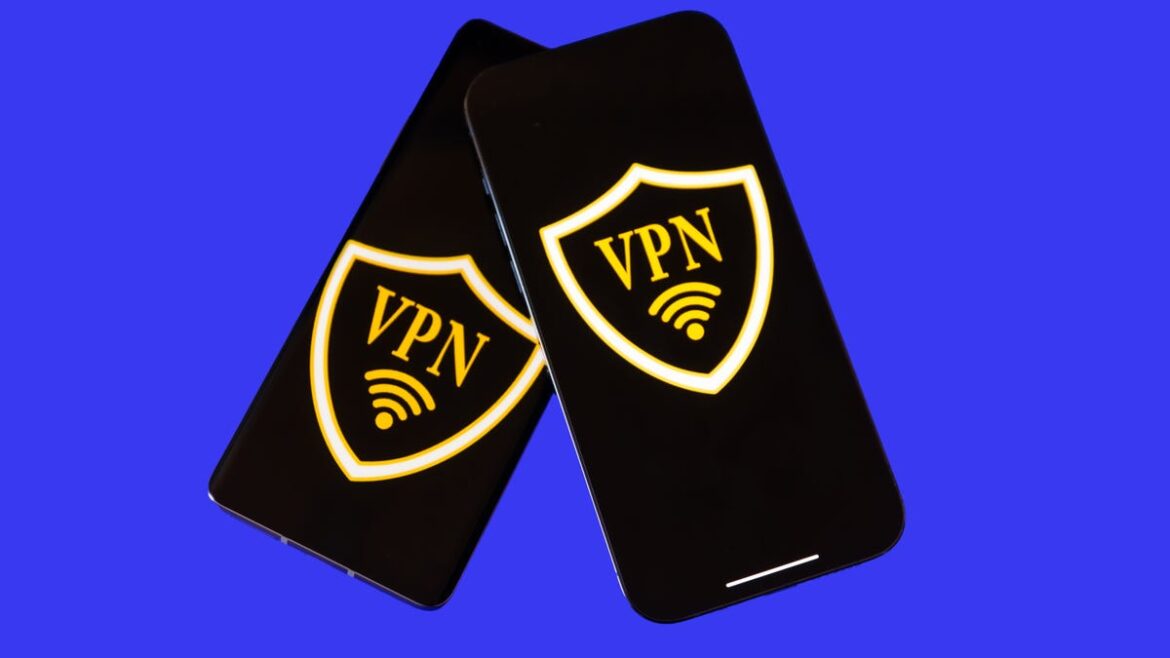When shopping for a virtual private network, you’ll need to figure out the best VPN for your needs and budget. Here’s what to look for.
Internet speed loss
VPNs somewhat lower your internet speed because you’re routing your traffic through an encrypted server before communicating with apps, websites and other internet services rather than a direct connection. The fastest VPNs feature an average download speed loss of 25% or less.
This table shows the speeds we experienced in our testing. Your speeds will vary depending on factors like your internet service plan and connection type. The percentage of speed lost is intended as a general indicator of how much the VPN slows down your connection; lower numbers represent a faster overall connection.
ProviderSpeed loss NordVPN 3%Proton VPN 16%ExpressVPN 18%Surfshark 21%Mullvad 24%
Privacy
At a minimum, we recommend a VPN with 256-bit encryption (for OpenVPN and IKEv2 VPN protocols) or ChaCha20 (with WireGuard), a strict no-logging policy and DNS leak protection. Because logging is tough to verify, look for regular third-party audits. You can and should be skeptical of your VPN provider’s zero-log claims. Still, VPN audits are important even if they don’t provide the full privacy picture.
Additionally, transparency reports offer peace of mind. We also suggest sticking with a VPN that includes a kill switch, which shuts your internet off in case your VPN unexpectedly disconnects.
More privacy-concerned folks such as investigative journalists or political activists will appreciate advanced features such as obfuscation (which makes it harder for ISPs to determine that you’re using a VPN), Tor over VPN (for additional encryption using the Tor network) and a double VPN (which relies on a second VPN server connection to enhance encryption). Folks with critical privacy needs should consider a VPN provider with jurisdiction outside of the Five, Nine or Fourteen Eyes intelligence-sharing communities for even stronger peace of mind.
Server network
When considering VPN server networks, look at the overall number of servers, as well as the individual country locations. For instance, one virtual private network company may have twice the total number of servers as a competitor but half the different country locations, meaning you’ve got fewer international choices. Anything over 60 countries will work for many folks.
You’ll sometimes find specialty servers, such as Tor (The Onion Router) over VPN, Double VPN or obfuscated servers. Onion over VPN and Double VPN servers provide extra privacy by bolstering your encryption even further when compared with a standard VPN connection. On the other hand, obfuscated servers make it more difficult for apps, websites or internet service providers to determine that you’re using a VPN.
Device support
Most virtual private network services offer apps for Windows, MacOS, Linux, Android/Android TV, iOS/iPadOS and web browsers. Apple TV apps are increasingly common, with ExpressVPN, Surfshark, Proton VPN, PIA, NordVPN, PrivadoVPN and IPVanish offering TVOS applications. ExpressVPN, NordVPN, Surfshark, Proton and PIA boast Linux GUI apps, making them compelling choices for Linux VPNs” target=”_self.
Most VPN companies let you install an app on as many gadgets as you wish, but you’re sometimes limited to simultaneous devices. ExpressVPN allows eight, while NordVPN and Proton give you 10. Surfshark, PIA and IPVanish are unlimited. Even with a provider like Express, Proton or Nord, you can still install a VPN on as many devices as you wish, but you’ll be able to have only a handful of active sessions at once. You can also install a VPN on your router for whole-home coverage, although this will typically void the warranty on the router.
VPN device compatibility
Wondering which VPN services work on which devices? We’ve got you covered.
ExpressVPNNordVPNSurfsharkProtonVPNMullvad Windows (x86 and Arm) ✔️✔️✔️✔️✔️MacOS ✔️✔️✔️✔️✔️Linux ✔️ (with GUI)✔️ (with GUI)✔️ (with GUI)✔️ (with GUI)✔️ (with GUI)Android/AndroidTV ✔️✔️✔️✔️✔️iOS/iPadOS ✔️✔️✔️✔️✔️Fire TV ✔️✔️✔️✔️✔️Smart TV* ✔️ ✔️✔️✔️✔️Apple TV ✔️✔️✔️✔️✔️Router ✔️✔️✔️✔️✔️Browser plugin** ✔️✔️✔️✔️✔️Simultaneous connections 810Unlimited105
*Smart television sets running Google TV/Android TV or Fire TV can download VPN apps directly, while LG’s webOS, Samsung’s Tizen OS and Roku TVs require a router VPN.
**For Chrome, Firefox, Brave, Microsoft Edge, Opera and Vivaldi.
Streaming capabilities
VPNs can be great for privacy. They’re also helpful for unblocking region-restricted entertainment content. A VPN lets you stream services like Peacock (for NFL games), Max or Hulu from your home country while traveling abroad. Conversely, VPNs also unlock access to foreign libraries on platforms like Netflix (to watch Wednesday), Disney Plus (for Marvel’s latest shows) and Amazon Prime Video (currently featuring Reacher). You may even be able to save money by using a VPN for streaming. For more info, check out the best VPNs for Amazon Prime Video and the best VPNs for streaming.
Cost
With most VPNs, you can buy virtual private network service on a monthly, bi-annual, annual or multi-year plan. Although multi-year deals typically net you the most savings, we usually recommend sticking with an annual plan for the best savings with the lowest risk. The virtual private network you sign up for may initially be fast, private and great for geo-unblocking, but may become slower, suffer a data breach or stop allowing access to foreign Netflix libraries over a year, at which point you’ll probably want to switch services
Make a budget, then find a VPN provider that fits the bill while being mindful of price hikes. Notably, there are plenty of ways to save money on your VPN subscription, like avoiding raised renewal rates by taking advantage of seasonal discounts like Black Friday/Cyber Monday deals. If you’re on a budget, you may want to consider one of the best cheap VPNs, like Surfshark, PIA or Mullvad.

